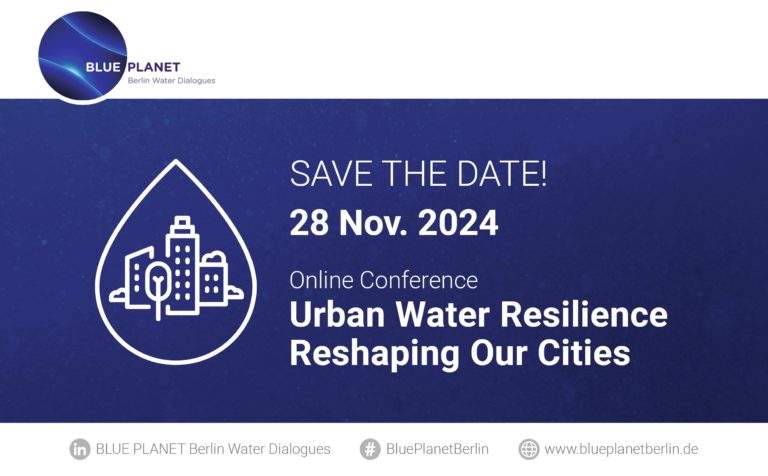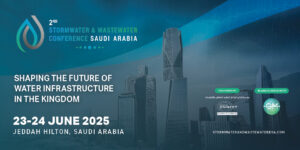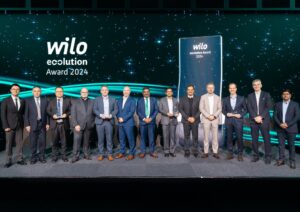BLUE PLANET Berlin Water Dialogues 2024: “Urban Water Resilience – Reshaping Our Cities”

The digital event format is aimed at an international audience, will be held in English and is free of charge for all participants. (Image source: German Water Partnership e.V.)
The BLUE PLANET Berlin Water Dialogues 2024 are an online conference format and are supported by the Berlin Senate Department for Economic Affairs, Energy and Public Enterprises.
Global challenges posed by climate change, demographic change, population growth and urbanization require a future-oriented and sustainable water resource management more urgently than ever. The BLUE PLANET Berlin Water Dialogues were launched in 2011 to promote the discussion of viable solutions for the future. The event series is now an established and growing international networking platform. It connects stakeholders from research, business and politics in the field of innovative water management. In 2023, around 800 people from over 70 countries registered for the online conference on the topic of “Closing the Loop - Circular Economy.”
This year's BLUE PLANET Berlin Water Dialogues will introduce successfully applied concepts for strengthening urban water resilience and explore their global feasibility. Thematically, the event is divided into the segments of urban planning and infrastructure and digitalization.
Urban planning: Cities are increasingly confronted with extreme weather events such as heatwaves, droughts, storms and flooding. With their dense population, extensive building development, paved surfaces and lack of green spaces, they are particularly vulnerable to their consequences. Sustainable, adaptable and resilient urban water systems are therefore crucial for overcoming these challenges. The umbrella concept for climate-resilient urban development is the “sponge city”, which integrates permeable materials, green spaces, roof gardens and rainwater reservoirs into the urban infrastructure for the absorption, storage and use of rainwater.
Infrastructure and digitalization: Resilient water supply and wastewater disposal in urban areas is interconnected with other infrastructures and services. In this scenario, digitalization sets up numerous opportunities. New technologies such as artificial intelligence and the Internet of Things have the potential to fundamentally change the water sector. Sensors and automated systems can provide real-time data on the condition of water infrastructure and enable faster leak detection and fixing. Advanced analytics can improve the prediction of water consumption and optimize water resource management.
The digital event format is aimed at an international audience, will be held in English and is free of charge for all participants.
Source: German Water Partnership e.V.







